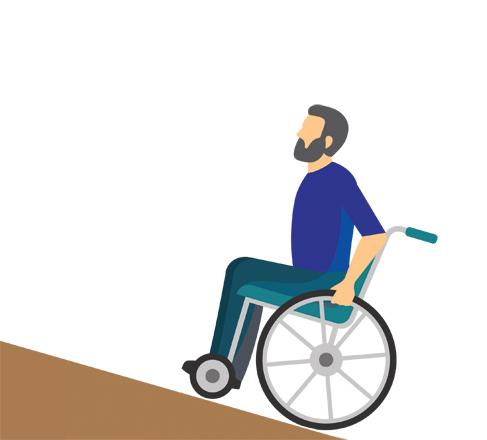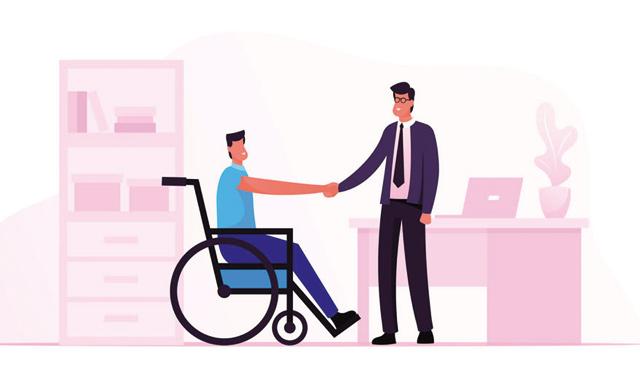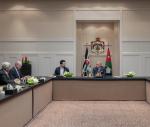You are here
Calls rise for enhancing accessibility for persons with disabilities
By Sarah Abu Zaid - Jan 03,2021 - Last updated at Jan 03,2021

AMMAN — Hadeel Abu Sufa, a young Jordanian woman, said she is barely able to go to any supermarket to buy groceries, or any store to get some new clothes, or even work anywhere, simply because she is a wheelchair user.
Like all young females of her age, Hadeel said she has the right to move freely. However, she noted that she does not have this option due to a lack of accessible places.
Hadeel said she even started calling the places she intended to visit to enquire about stairs and entrances in the building.
“The lack of accessibility affects our right to have financial independence, good education and public transportation. I believe that every sector must be built upon something called a building code to provide full accessibility,” Hadeel said.
“Many of us can’t work and have limited job opportunities due to the lack of accessibility in some sectors and public transportation, especially those of us who live in rural areas,” she added.
She called for more accessibility and enforcement of better laws “so we can live with more independence and dignity”.
According to the Department of Statistics, in 2015, an estimated 11.2 per cent of the population have disabilities.
“We face a lot of challenges regarding the accessibility, especially in education and health sectors,” Muhannad Al Azzeh, secretary general of the Higher Council for the Rights of Persons with Disabilities (HCD), told The Jordan Times.
Buildings must provide accessibility and provide a proper environment for persons with disabilities, he said.
The staff working in those facilities must have general communicational ethics and be qualified to offer assistance, he said.
A strategy was put in place in 2017 to implement regulations pertaining to accessibility in public and private sectors, the HCD secretary general said.
“Many companies started to provide job opportunities for persons with disabilities,” he said.
Kamel Al Saadi, founder of the "Lifeline" project to help landmine survivors and persons with disabilities, suggested that Jordan could set an example to the world if stakeholders in all sectors consider the needs of persons.
“I have witnessed improvement in accessibility in public transportation in Amman and Aqaba,” he said.
Sirin Qabin, a mother of a child with developmental disability, highlighted the lack of accessibility in public places, particularly in schools.
“As a mom for a child with a development disability, I feel people generally want to help but don’t know how,” she said.
She emphasised that the journey towards accessible and inclusive society is long-term endeavour.
Qabin called for solid plans to be put in place that give due consideration for the rights of people with disabilities. “We cannot only depend on the goodwill of people,” she said.
Related Articles
AMMAN — Hadeel Abu Soufah, a consultant and trainer on disability inclusion, said that persons with disabilities in Jordan should be “empowe
AMMAN — Most archaeological sites in Jordan are inaccessible for people with disabilities and facilitating the access to those locations is
AMMAN — A new law that will come to force within 30 days obliges both private and public sector establishments employing between 25 and 50 w
















